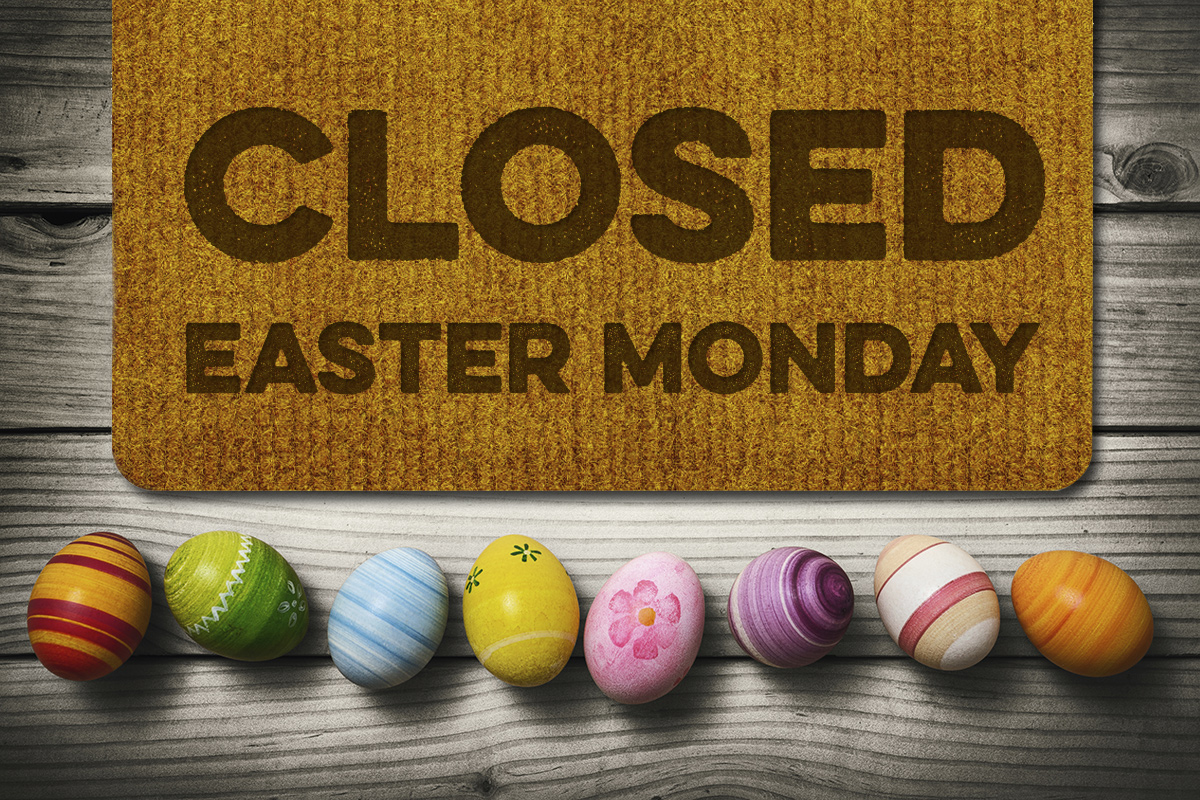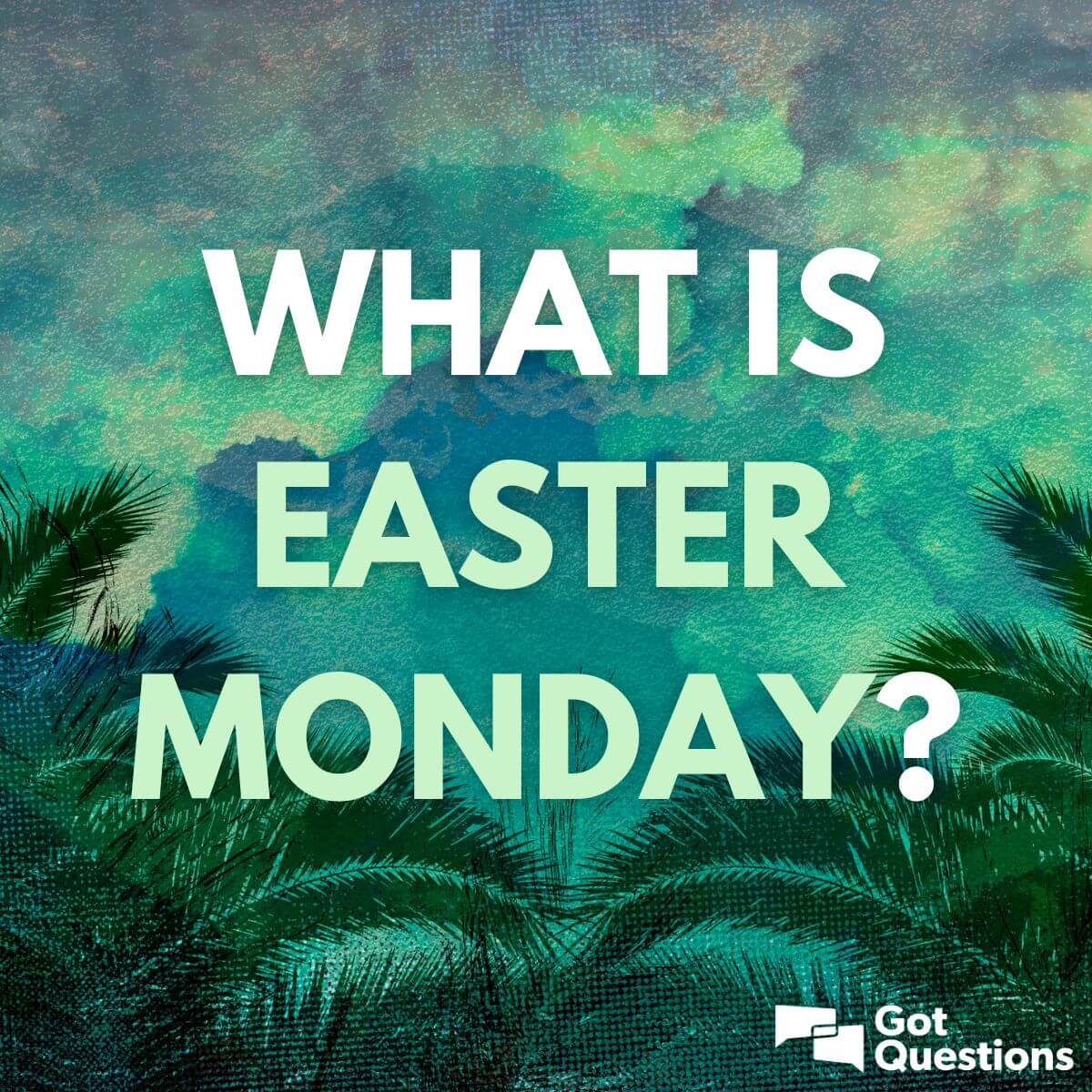What Happened On Easter Monday- A Look At Our Shared Stories
Easter Monday, for many, marks a moment for pause, a time when the world, in a way, takes a collective breath after the weekend’s celebrations. It’s a day often filled with quiet reflection or perhaps some gentle activity, but it also carries a subtle weight, a question that lingers in the air: what really took place? This inquiry, you know, isn't just about historical facts or specific events; it stretches into how we recall things, how we speak about them, and how those stories become part of our shared experience. We are, more or less, always trying to piece together the narrative of days gone by.
When we think about what happened on Easter Monday, we're really looking at the ways we gather information and try to make sense of moments that have passed. It’s almost like trying to piece together a conversation from memory, where some parts are very clear, and others are a little hazy. We depend on how things are said, the words chosen, and the feelings attached to those recollections. This process, actually, is quite a common human experience, as we often reflect on past occurrences.
This exploration of what happened on Easter Monday then becomes a way to consider the many ways we communicate about our collective past. It shows us how language helps shape our memories and how we pass along accounts of days gone by. Basically, it’s about the stories we tell and how those stories come to be, and how they might be understood by different people.
Table of Contents
- How Do We Talk About What Happened on Easter Monday?
- Making Sense of Past Moments
- The Tools We Use to Share Stories of what happened on easter monday
- When Words Get Mixed Up- Misinterpretations of what happened on easter monday
- What Does Remembering What Happened on Easter Monday Mean?
- Pinpointing When and Where Things Occurred on what happened on easter monday
- How Do We Start Telling the Story of what happened on easter monday?
- What Lasting Impact Does What Happened on Easter Monday Have?
How Do We Talk About What Happened on Easter Monday?
Thinking about what happened on Easter Monday often brings us to the very words we pick to describe it. It's similar to figuring out what are the most popular internet abbreviations and how to use them correctly. We choose certain ways of speaking, certain short-cuts, or even certain long explanations to get our point across. The language we use, in a way, helps paint the picture of the past for others, allowing them to grasp the sequence of events.
The way we put sentences together, the flow of our thoughts, all play a part in sharing the story of what happened on Easter Monday. It’s not just about the facts, but about the structure that holds those facts together, giving them shape and meaning. Like, the grammatical structure of the sentence is the following: Subject + auxiliary verb, then a second clause with Auxiliary verb + subject, as several grammar books define it. This kind of structure helps us make sense of events, giving them a proper order and making them easier to follow for anyone listening or reading.
We sometimes rely on very specific words to make our point clear, to truly highlight a particular detail. Consider how "just" and "only" are two words commonly used in English. We explain how they're different and how to use each. This precision in language helps us be very exact when we talk about what happened on Easter Monday, making sure our accounts are as close to the actual event as possible, without adding or taking away from the core experience.
The choice of words can shift the entire feel of a memory, too. A simple phrase can convey a great deal of meaning, or it can, you know, leave room for many interpretations. So, when we discuss what happened on Easter Monday, the exact terms we select are really quite important for creating a shared picture in people’s minds.
Making Sense of Past Moments
To truly grasp what happened on Easter Monday, we often need to look back, perhaps like someone looking at a past thought from three years ago. This reflection helps us put things into perspective, to see how one event connects to another. It’s about more than just remembering; it’s about understanding the circumstances that shaped that particular day and how they fit into a larger timeline.
Sometimes, what happened on Easter Monday might have consequences for future plans, requiring a change in direction. We might need to message people to understand what happened and agree on a new date and time. This shows how past events, even small ones, can affect what we do next, making us adjust our schedules or our expectations, as a matter of fact.
There are moments when we need to reschedule things because of what took place, showing a need for flexibility. For instance, you might need to reschedule a class and select “student asked to cancel/reschedule” as the reason. This flexibility, you know, is a natural part of dealing with events as they unfold, and it shows how we adapt to circumstances, especially when something unexpected has occurred.
Understanding the reasons behind past events helps us to respond more thoughtfully. When we try to make sense of what happened on Easter Monday, we are, in essence, trying to understand the chain of cause and effect. This deeper understanding allows us to learn from the past and apply those lessons to current situations.
The Tools We Use to Share Stories of what happened on easter monday
When we talk about what happened on Easter Monday, we use various communication tools to get our message across. Think about it: here's a list of texting abbreviations to help you succeed in any online talk. These simple shortcuts help us share information quickly and effectively, even when discussing past events. They are, in a way, part of our modern way of telling stories, making communication more efficient.
Our language, both spoken and written, helps us connect with others about shared memories. Whether it’s a quick message or a longer conversation, the way we express ourselves shapes how others receive our account of what happened on Easter Monday. It's about making sure our words land right, so the message is clear and truly understood.
Sometimes, the simple act of saying thank you is part of the story, showing appreciation for past interactions. Wondering what is thank you in German? We'll cover everything you need to know. We list 14 ways to say “thank you” in German, so you are ready for any situation. Expressions of gratitude, honestly, can be a big part of how we remember interactions from a specific day, like Easter Monday, adding a layer of feeling to the memory.
These tools, whether they are formal language structures or informal shortcuts, all serve the same purpose: to convey information about what happened on Easter Monday. They allow us to build a collective memory, piece by piece, so that everyone can, more or less, be on the same page about the past.
When Words Get Mixed Up- Misinterpretations of what happened on easter monday
It’s possible that when we talk about what happened on Easter Monday, misunderstandings can pop up, creating confusion. This is similar to how Preply home English might appear if you look the wrong way, creating confusion about the intended meaning. Words can be tricky, and what one person means, another might hear differently, leading to varied accounts of the same event.
We often need to learn the causes of intercultural misunderstandings and how to prevent them. This applies just as much to recounting past events as it does to workplace communication. Different perspectives can lead to varied accounts of what happened on Easter Monday, making it important to be clear and patient when sharing, to bridge any gaps in understanding.
To improve our shared understanding of what happened on Easter Monday, we should explore actionable strategies to improve communication and foster inclusivity. When everyone feels heard and their viewpoint is considered, the collective memory of a day becomes much richer and more accurate. This is, basically, about building bridges with words and ensuring everyone’s story contributes to the larger picture.
These misinterpretations can sometimes make it harder to truly grasp what happened on Easter Monday, requiring us to go back and clarify details. It highlights the delicate nature of shared memory and the need for open, honest conversation to arrive at a

Easter Monday - Stephen Morris, author

What is Easter Monday? | GotQuestions.org

Closed Easter Monday Printable Sign Stock Illustration, 50% OFF